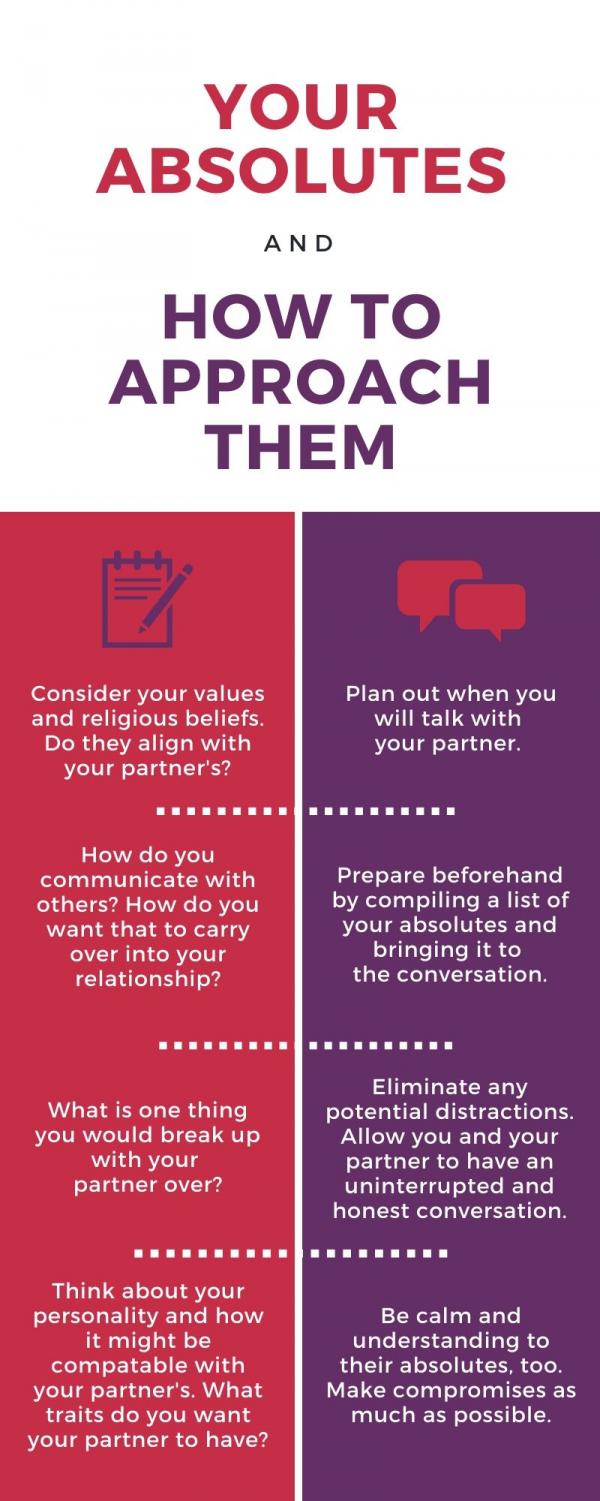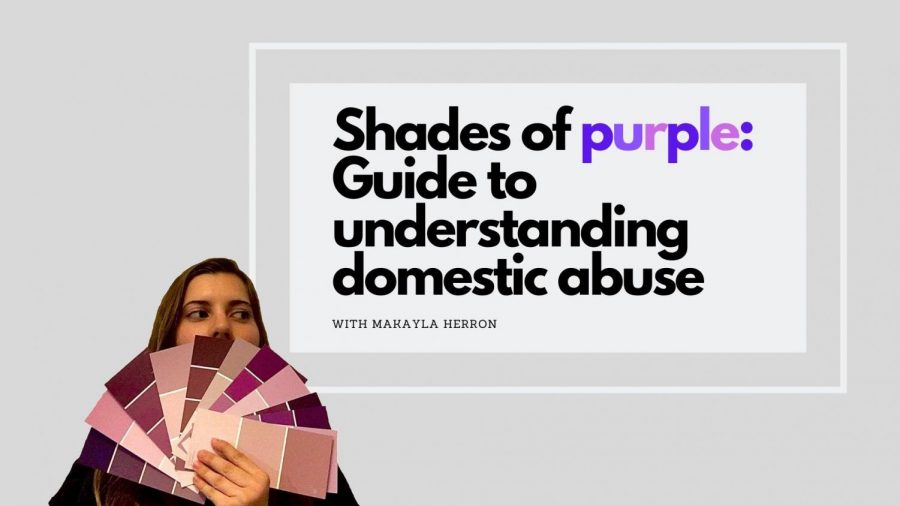Shades of Purple: Guide to understanding domestic abuse
Setting boundaries
There’s a quote by musician Kevin Michael McKeehan that goes: “A lack of boundaries often invites a lack of respect.” This statement can apply to various areas of your life, but especially to relationships. If you expect to be treated with respect and regarded as your partner’s equal, then you and your significant other should set clear boundaries for how you plan to accomplish those goals.
This is best done when beginning a relationship; at this time, you should compile a list of your absolutes — qualities in your partner that you aren’t willing to compromise. For example, if you have a close relationship with your family members and want your partner to respect them, then that might be considered an absolute.
Setting boundaries in a relationship, especially at the beginning, is key to ensuring you and your partner are on the same page and can respect one another. Without establishing clear absolutes, feelings of insecurity or frustration in the future may seem to come out of nowhere. However, you can likely avoid these feelings by discussing clear terms and conditions for the relationship. And those aren’t the type that you’ll want to scroll through quickly and press “agree” without a second thought. These conversations should be thought-out and organized so you and your partner can have a sense of clarity and prudence in your relationship.
Even if you set clear boundaries, it may not prevent a partner from taking on an abusive role. However, your partners’ actions and disregard for your boundaries are not your fault. Ideally, discussing your absolutes will help them better understand what you hope for in the relationship as well as set expectations for how they should treat you. For instance, a person — who we’ll call partner A — may become aggressive in their speech by raising their voice or speaking bluntly. Another person — partner B — who is generally sensitive to this behavior or who witnessed domestic abuse as a child may not respond well. If partner A is aware of this, they can make a conscious effort to alter their speech, thus allowing them to feel in tune with their partner’s feelings.
While outlining your boundaries is important, it’s also easier said than done. It can be an intimidating thing to speak so freely about during the “passionate love” stage, as psychologist Elaine Hatfield describes it. This stage typically occurs at the beginning of a relationship, especially with teenagers, and is an intense, immature love. Yet, when you take the time to discuss your boundaries, this can evolve into a healthier, calmer and more mature relationship, which is called companionate love.
If you’re struggling to find ways to approach setting boundaries with your partner or have yet to come up with a list of absolutes, here are a few tips:










